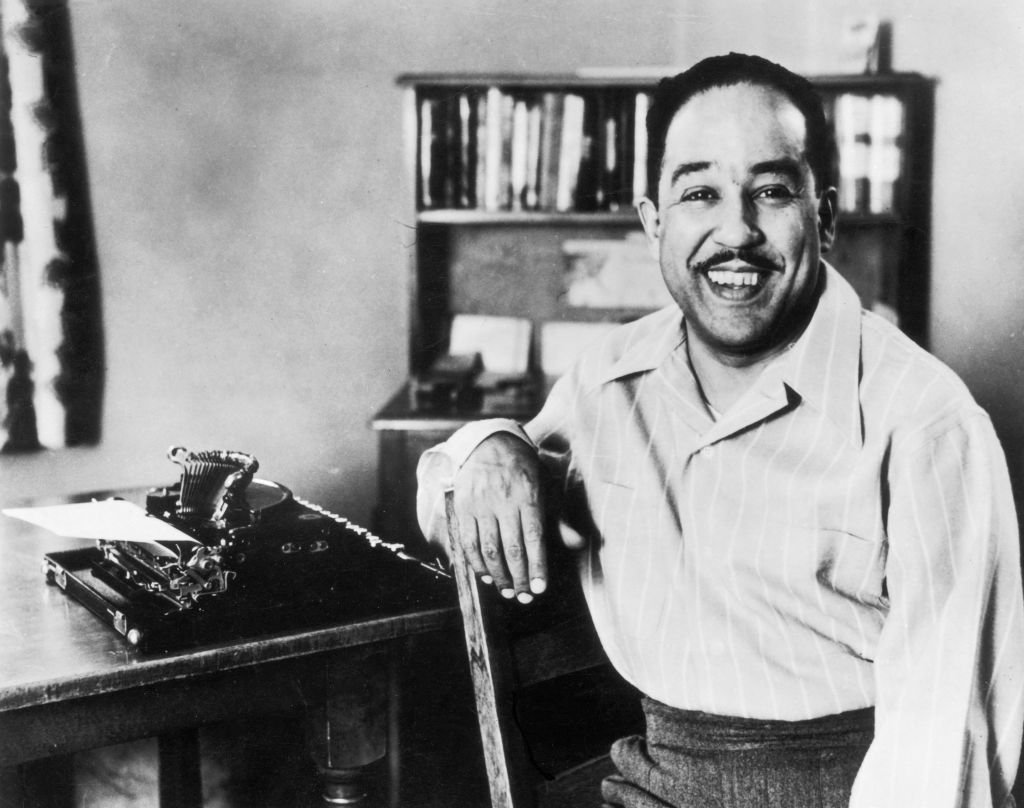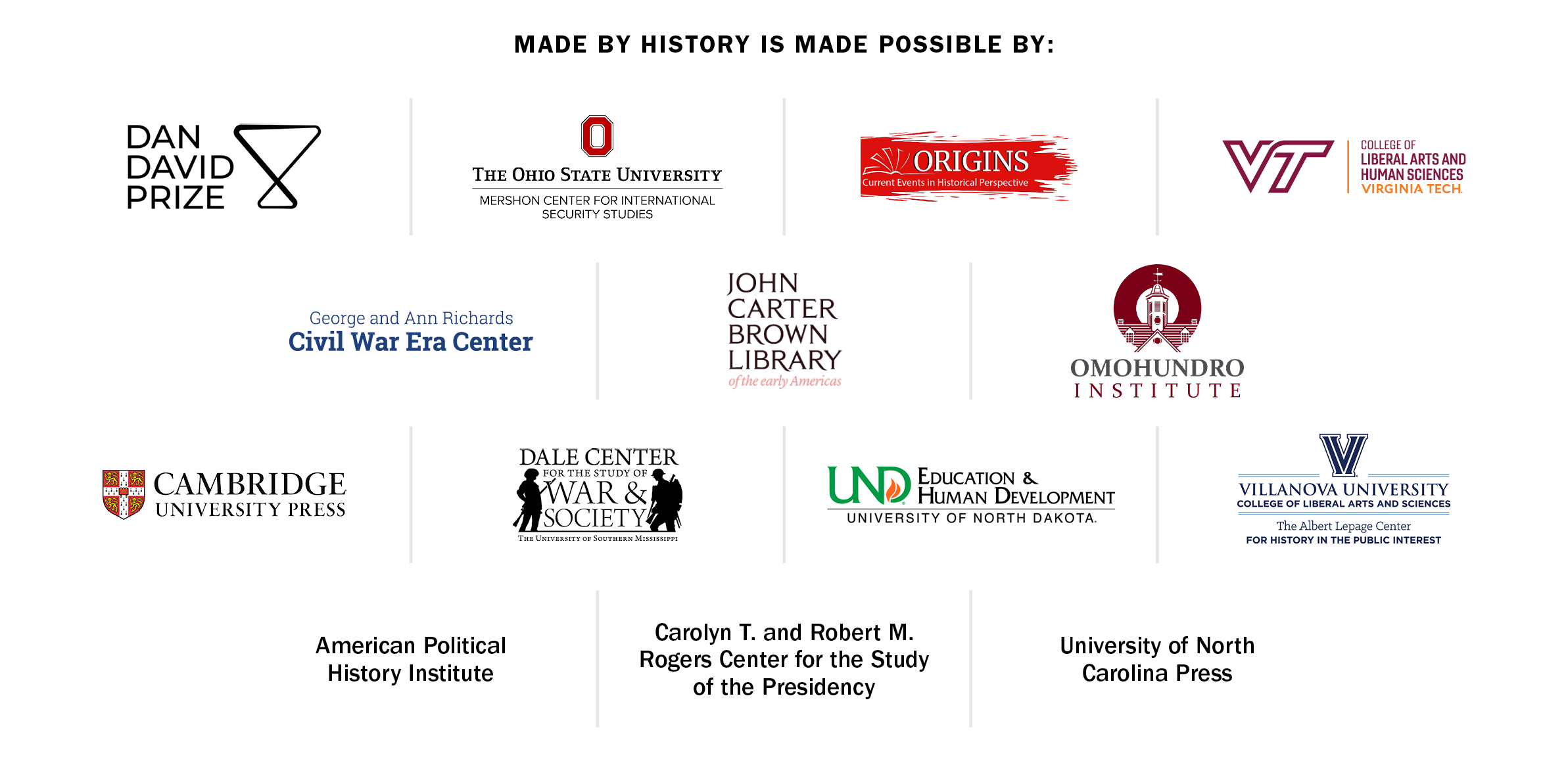
On a snowy Christmas morning in 1932, the writer and poet Langston Hughes woke up to find a stocking hanging from the post of his bed. It was stuffed with halva, cashew, and pistachio nuts grown by his hosts, a group of African American agronomists who had been living in Yangiyul, Uzbekistan, at the invitation of the Soviet government.
The day was filled with yet more surprises. “We even had pumpkin pie for dessert,” Hughes later wrote in I Wonder as I Wander, his self-described autobiographical journey, “and the tables were loaded down with all the American-style dishes that those clever Negro wives could concoct away over there in Uzbekistan.” The meal was the result of a joint effort thanks to the male agronomists’ ability to coax a harvest from the unforgiving tundra, and to their wives’ skill at turning the ingredients into a meal reminiscent of the kind they used to enjoy back home in the United States.
As we enter a holiday season set against the backdrop of war and other conflicts, we would do well to remember Hughes’ forgotten Uzbek celebration. It stands as testament to the power of creating a sense of home and community even under the most challenging of circumstances.
Read More: The World's Greatest Places—Uzbekistan
A chance encounter in Moscow led to the Christmas visit. Hughes had been hired to help punch up the script for a Communist International (Comintern)-financed film titled Black and White. The production was to be shot in Moscow but set at a steel mill in Birmingham, Ala. According to Hughes: “its heroes and heroines were Negro workers. The men were stokers in the steel mills, the women domestics in wealthy homes…Its villains were the reactionary white bosses of the steel mills and the absentee owners, Northern capitalists, who aroused the poor white Southern workers against both the [incipient] union and the Negroes.”
In short, the film was meant to bolster the Soviet model of trade unionism and criticize the United States’ divisive racial politics. At the same time, it was also an opportunity for African American actors and writers to get work in their chosen fields during a time when such opportunities were in short supply back home.
While the film crew waited out some production delays, they made their way through Moscow’s popular gathering spots, like the Metropol, the Bolshoi Moscow, and the Grand Hotel, where they were staying. Somewhere along this circuit, Hughes ran into another group that happened to be in the city for reasons somewhat like his own.
That group was led by Oliver Golden, a Mississippi-born veteran of the First World War and graduate of the Tuskegee Institute (now University) who, despite having studied under George Washington Carver, could only find work in the United States as a pullman porter and dishwasher.
Those early roadblocks made it relatively easy for him to accept an invitation from a Soviet recruiter to pursue studies at the Communist University of the Toilers of the East (KUTV) in the 1920s. The student body represented more than 70 nationalities and ethnicities and included, at various points, future leaders like North Vietnam’s Hồ Chí Minh and Deng Xiaoping of the People’s Republic of China. The school included African Americans in its mission because the Soviets considered them, like their KUTV brethren, a colonized people (in their case, within their own country, by their fellow citizens), and sought to train them to lead Communist movements in the United States.
Golden’s experience taught him that the Soviets valued his intellect and contributions, and he continued to work for Communist causes when he returned to the United States. That work soon put him in the path of another recruiter who invited Golden to lead a team of African American agronomists on a two-year project in the Soviet Union’s burgeoning agricultural industry in Uzbekistan. This gave him the opportunity to do the kind of work Golden had gone to school for, and wanted to do, for years. In exchange, the Soviets would pay several hundred dollars a month, which amounted to a fortune during the Depression, along with a home to live in, an extended paid vacation each year, and the service of a household maid.
Read More: The Black Power Movement Is a Love Story
Regardless of how appealing he and his wife Bertha Bialek (a U.S.-born daughter of Jewish immigrants from Poland) personally found the possibility of accepting the Soviet offer, Golden initially struggled to assemble a team. It was a hard sell to ask recruits to leave their home country for a place even Golden had never visited. They knew nothing of its customs and culture, and worried that they would be traveling vast distances only to encounter the same kind of racism they left behind, all without familiar support systems to navigate it. But what choice did they have?
Golden eventually managed to convince a group that included fellow Tuskegee alumnus John Sutton, Wilberforce University graduate George Tynes, Virginia State College’s Joseph Roane, and several of their wives (not all the men were married). Their first official stop was in Moscow, where they pulled in to the Oktyabrsky rail terminal on Nov. 7, 1931, which not coincidentally fell on the 14th anniversary of the 1917 Bolshevik Revolution that overthrew the tsarist government and brought Vladimir Lenin to power. A ceremonial program in Red Square and the next day’s issue of the Moscow News happily reported that the agronomists had front row views to the festivities.
Golden and Roane got on with Hughes so well during this busy Moscow interlude that they invited him to call on them in Yangiyul sometime if he was ever willing to make the trip. No one knew it at the time, but the Black and White production would soon fall apart, dashing the film crew’s artistic hopes but ultimately freeing up Hughes to travel around the Soviet Union and take his new American friends up on their offer to visit.
Read More: The Overlooked LGBTQ+ History of the Harlem Renaissance
Hughes arrived just in time for Christmas in 1932. By then, the agronomists had begun to tally several successes like introducing a new species of cotton to the region (one that is still grown today), growing their own food, getting married, having children, developing ties with the local Uzbek community, and generally finding ways to settle into their lives by drawing inspiration from both old worlds and new.

Still, to a casual visitor like Hughes, Yangiyul’s pleasures were slow to reveal themselves. He had had a long, somewhat arduous journey east, and the end was marked with the surprising discovery that his train would only be slowing down, and not stopping, to let him disembark.
Golden and Roane eagerly met him at the train station for what should have been a happy reunion. “But as we slithered through the sticky snow and pulled our feet from the sucking mud at each step,” Hughes admitted, “I am afraid I failed to hide very well my lack of joy at seeing at last a large group of fellow American Negroes away out in Asia.” While not the most easygoing guest upon his arrival, Hughes soon understood what a feat the agronomists and their families had managed. Out here in this vast expanse a world away from the home (one they were forced to leave by circumstances beyond their control), they came together to find refuge, community, and, in that, a reason to celebrate.
Tamara J. Walker is an Associate Professor of Africana Studies at Barnard College, co-founder of The Wandering Scholar, and the author of Beyond the Shores: A History of African Americans Abroad. Made by History takes readers beyond the headlines with articles written and edited by professional historians. Learn more about Made by History at TIME here.
Correction, Jan. 2: The original version of this story misspelled the author's last name. It is Walker, not Walter.
More Must-Reads from TIME
- Cybersecurity Experts Are Sounding the Alarm on DOGE
- Meet the 2025 Women of the Year
- The Harsh Truth About Disability Inclusion
- Why Do More Young Adults Have Cancer?
- Colman Domingo Leads With Radical Love
- How to Get Better at Doing Things Alone
- Michelle Zauner Stares Down the Darkness
Write to Tamara J. Walker / Made by History at madebyhistory@time.com
